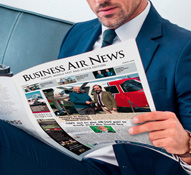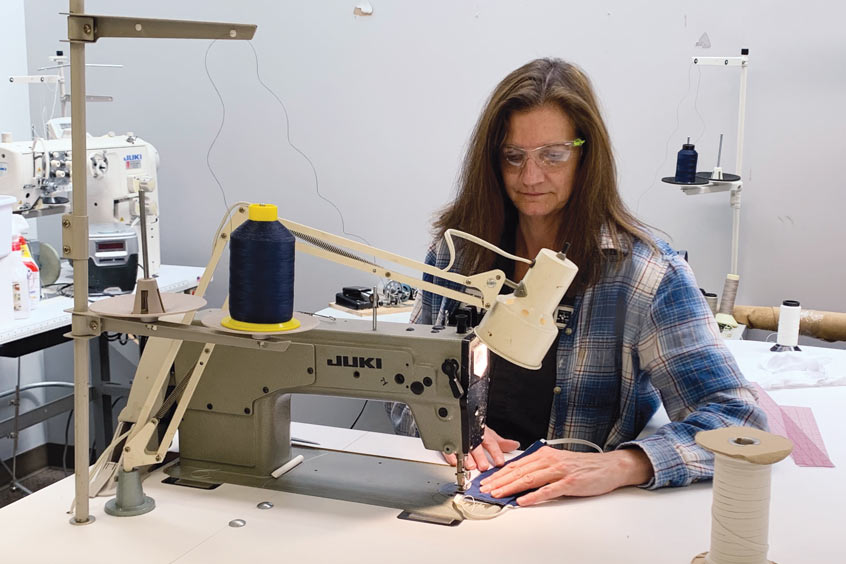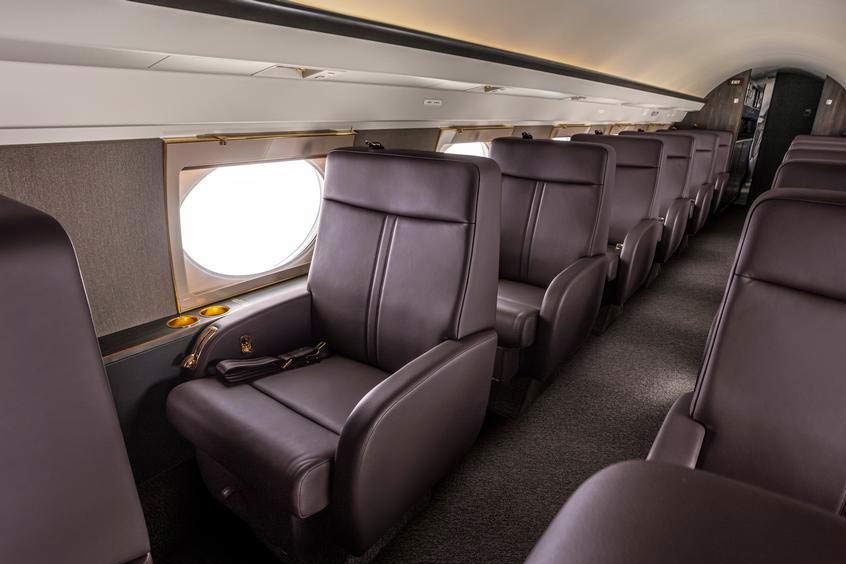 The monthly news publication for aviation professionals.
The monthly news publication for aviation professionals.



Duncan recently worked with a longtime customer to refurbish a Gulfstream IV-SP to better operate it as a corporate shuttle for up to 14 passengers. Workers have been using masks manufactured in-house.
This longtime Duncan Aviation client uses a fleet of GIV-SPs that operate as vital corporate shuttles, often flying 12 to 14 people on longer international trips, says Austin Chambers, airframe service sales rep for Duncan Aviation's Battle Creek, Michigan, location. One of their aircraft had a 96 month inspection due, which required that the interior be removed and replaced. It sported a configuration that did not have divans designed for the durability they required, nor were they the client's preferred seating option for three adults. Duncan Aviation and the customer decided an extensive cabin reconfiguration along with the inspection was the best option for the aircraft's mission.
“This was a great opportunity to show what Duncan Aviation can do, offering something truly customised for a client's specific needs. Whenever we get the opportunity to work large, multi-shop projects like this, it's exciting. This is where Duncan Aviation really shines,” Chambers says.
The interior design was lead by Kristen Cotugno, senior lead designer with Duncan Aviation in Battle Creek. Cotugno knew she was up to a unique challenge after listening to the customer's needs. She concluded that the interior needed to be durable enough to hold up to constant use while containing subtle masculine features and be comfortable for all 14 passengers. She and her internal design team got to work with the support of Duncan Aviation's engineering department and built up renderings to review with the customer.
The Gulfstream GIV-SP was delivered earlier this year with a completely refurbished and reconfigured interior featuring 14 individual club seats in walnut brown leather. The unique configuration has all of the seats facing straight ahead towards the cockpit, similar to typical airline seating. Many of the seats feature rotating bases, allowing them to pivot 180 degrees when needed, which gives the seats the flexibility to function more like seats do in a standard corporate configuration. In the end, countless hours of planning and execution all came together for a truly beautiful and versatile finished product and another satisfied customer.
“Our client had specific mission requirements and, although what they were asking us to complete was difficult, we embraced the challenge and delivered a product that substantially surpassed their expectations, all while staying within their budget,” says George Bajo, completions and modifications manager.
In addition to the inspection and the refurbishment, the aircraft's workscope included a 5,000 landing inspection, including replacement of the failed cap angle, and a full custom paint scheme. The company's other two GIV-SPs also came in for heavy airframe maintenance events, full paint refurbishments and 5,000 landing inspections all with failed cap angle replacements.
In other news, Duncan Aviation has initiated social distancing at work to prevent the potential spread of COVID-19 and began looking to acquire face masks for use by team members when they absolutely had to work together in close quarters, like an aircraft flight deck, for a short period of time. It became obvious that mask supplies were depleted and that healthcare workers and those working directly with the public in service roles didn't have enough masks to meet their anticipated needs. Duncan Aviation's interior and upholstery teams reached out to a local hospital in Lincoln, Nebraska, and asked for help in designing a mask, as well as advice on what the company could do to support hospitals during this time of need.
The hospital shared specifics and two different mask templates were created. Using the hospital's instructions, Duncan Aviation digitised the designs for cutting with its automated fabric-cutting machine, which usually cuts leather, sheepskin and other durable materials for use in business aircraft. Depending on the width of the material used for the masks, Duncan Aviation can cut materials for up to 900 masks every hour. To date, the company has cut more than 15,000 masks.
Sewing the masks is a bit more time-consuming. Upholstery professionals with Duncan Aviation's full-service facilities in Lincoln, Battle Creek, Michigan, and Provo, Utah, have been sewing masks, as have more than 300 volunteers from local churches, fabric stores and hobby groups in the communities Duncan Aviation calls home. The company has also cut and begun sewing hundreds of medical gowns for area health facilities.
“This all started with a team of employees who recognised a problem and had the means and desire to solve it,” says Aaron Hilkemann, president and CEO of Duncan Aviation. “It is indicative of the creativity, compassion and initiative found in our team members. And we are happy to help our communities in this manner. We feel it is the least we can do and appreciate the opportunity to show our concern and gratitude to those working on the front lines of this pandemic.”
COVID